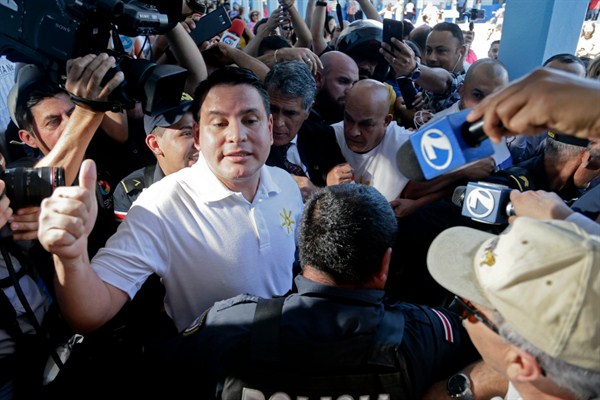Costa Ricans headed to the polls last Sunday amid an unusually heated campaign that few had foreseen and even fewer dared to predict. Following the Feb. 4 vote, Fabricio Alvarado of the conservative National Restoration Party and Carlos Alvarado of the leftist Citizens’ Action Party, or PAC, which has been in power since 2014, are headed to a second round on April 1. No presidential candidate came close to securing the 40 percent share of the vote required to avoid a runoff, underscoring the increasingly fragmented political environment in what has been Central America’s most stable democracy.
The two Alvarados share little more than their surname, with diametrically opposed views and stances on issues that have surged in importance in Costa Rica, from same-sex marriage to fiscal policy. The campaign trail ahead looks uncharacteristic for a country that had gotten used to tranquil politics.
Up until 2014, Costa Rica’s political environment was the domain of the left-leaning National Liberation Party and the center-right Social Christian Unity Party, which traded off control of parliament and the presidency for decades. Their duopoly was broken by the surprise presidential victory in 2014 of the PAC’s Luis Guillermo Solis, a former diplomat and virtual unknown before the election. That started the fragmentation, but for Solis’ first few years in office, major parties and their candidates continued to share broad ideologies, particularly on economic policy.

